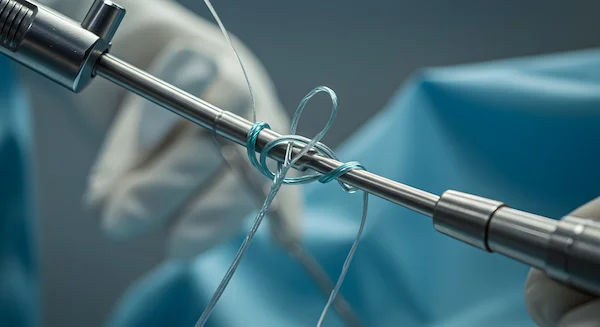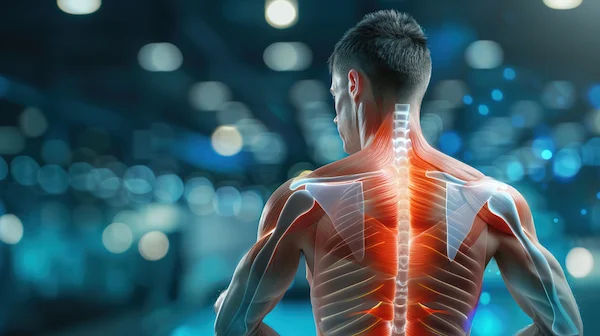Guide to Acute Abdominal Pain
Explore the guide to acute abdominal pain, its common causes, symptoms, diagnosis, and treatment options for timely relief and care.

Written by Dr. Rohinipriyanka Pondugula
Reviewed by Dr. Shaik Abdul Kalam MD (Physician)
Last updated on 13th Jan, 2026

Introduction
That sudden, gripping pain in your stomach, acute abdominal pain, can be incredibly alarming. One moment you're fine, the next you're doubled over, wondering if it's something you ate or a sign of something more serious. You're not alone. Acute abdominal pain is one of the most common reasons people visit the emergency room. This guide is designed to help you understand the potential causes of your acute abdominal pain, decode what the location and sensation might mean, and, most importantly, know when it's crucial to seek immediate medical attention. While this information is empowering, it's not a substitute for a professional diagnosis. We'll walk you through the common culprits, from simple indigestion to conditions requiring urgent care, and provide clear advice on your next steps.
What is Acute Abdominal Pain?
Acute abdominal pain refers to sudden, severe pain that develops over a few hours or days. Unlike chronic pain that lingers for weeks or months, acute pain is a new and intense experience that often serves as your body's primary alarm system. It demands attention. This pain can manifest in various ways: a sharp, stabbing sensation; a constant, dull ache; cramping that comes in waves; or a burning feeling. Understanding its character and location is the first step in unraveling the mystery. It's your body's way of pointing to a problem, whether it's inflammation, a blockage, an infection, or a ruptured organ. Ignoring severe or persistent acute abdominal pain can be dangerous, as early intervention is key for many serious conditions.
Consult a Gastroenterologist for the best advice
Decoding the Location of Your Pain
The position of abdominal pain can reveal important clues about its cause, helping doctors narrow down the right diagnosis.
Pain in the Upper Abdomen
The upper abdomen houses vital organs like the stomach, liver, gallbladder, and pancreas. Pain here is often related to digestion.
Right Upper Quadrant (RUQ) Pain
This is classic gallstones territory. Pain from a gallbladder attack often strikes after a fatty meal and can be severe enough to take your breath away, potentially radiating to your right shoulder or back. Hepatitis (liver inflammation) can also cause a dull ache here.
Left Upper Quadrant (LUQ) Pain
While less common, pain here can indicate issues with the stomach (like gastritis or an ulcer), problems with the spleen (such as enlargement or rupture after injury), or pancreatitis.
Central Upper (Epigastric) Pain
This "pit of the stomach" pain is frequently linked to heartburn, acid reflux, or gastritis. A burning sensation here is typical. However, it can also be the primary location for pain from pancreatitis, which often radiates straight through to the back and is accompanied by severe nausea.
Pain in the Lower Abdomen
The lower abdomen contains the intestines, appendix, and organs of the urinary and reproductive systems.
Right Lower Quadrant (RLQ) Pain
This is the hallmark sign of appendicitis. The pain often starts around the belly button before migrating to the RLQ and becomes constant and sharp. It's a medical emergency. Other causes include Crohn's disease or ovarian issues in women.
Left Lower Quadrant (LLQ) Pain
The most common cause here is diverticulitis, especially in older adults, which is an inflammation of small pouches in the colon. It can cause fever and significant tenderness. For women, pain on either side of the lower abdomen can also signal ovarian cysts or pelvic inflammatory disease.
Central Lower (Suprapubic) Pain
Pain right above the pubic bone often points to urinary tract infections (UTIs) or bladder issues, frequently accompanied by a burning sensation during urination and urgency. In women, it can also be related to menstrual cramps or uterine conditions.
Generalised or Wandering Pain
Sometimes, the pain isn't in one spot. It might be all over or seem to move. This is common with stomach viruses (gastroenteritis), causing cramping and bloating. Gas pain can also be generalised and feel sharp and crampy. However, generalised pain that becomes severe and constant can indicate a serious issue like a bowel obstruction or peritonitis.
Common Causes of Acute Abdominal Pain
From infections to digestive issues, several conditions can trigger sudden abdominal pain; understanding them is key to proper care.
Digestive System Issues (Gastrointestinal)
This is the largest category. Gastroenteritis, or the "stomach flu," is a top culprit, causing cramping, diarrhoea, and vomiting. Gas and bloating can cause sharp, intermittent pains that resolve after passing gas or a bowel movement. More serious conditions include appendicitis (inflammation of the appendix) and diverticulitis (inflammation of colon pouches). Bowel obstructions, which prevent the normal passage of contents, cause severe, crampy pain, distension, and vomiting.
Urinary and Kidney-Related Causes
A urinary tract infection (UTI) can cause a persistent, pressure-like pain in the lower pelvis and a burning sensation when urinating. Kidney stones, however, are infamous for causing some of the most severe acute abdominal pain imaginable. The pain is often colicky (comes in waves) and radiates from the flank to the groin. It's often accompanied by nausea and blood in the urine.
Reproductive Organ Causes (For Women & Men)
For women, acute abdominal pain can be gynaecological. Ovarian cysts can cause a dull ache or a sudden, sharp pain if they rupture or twist. Pelvic Inflammatory Disease (PID), an infection of the reproductive organs, causes lower abdominal pain and fever. Ectopic pregnancy (a pregnancy outside the uterus) is a life-threatening emergency causing severe, one-sided pain. For men, testicular torsion or epididymitis can sometimes refer pain to the lower abdomen.
Red Flags: When to Seek Emergency Care Immediately
Not all stomach aches require a trip to the ER, but certain "red flag" symptoms demand immediate action. Seek emergency care if your acute abdominal pain is:
Sudden and very severe.
Accompanied by a high fever.
Located in the right lower quadrant, suggesting appendicitis.
Associated with vomiting blood or passing bloody or black, tarry stools.
Making your abdomen hard and tender to the touch (rigid).
Occurring after a recent injury or trauma.
Causing you to feel lightheaded, dizzy, or short of breath.
Persistent and worsening over several hours.
If you experience any of these, do not wait. Go to the nearest emergency room or call for an ambulance.
How Doctors Diagnose the Cause of Your Pain
Doctors use medical history, physical exams, and diagnostic tests to find the underlying reason for acute abdominal pain.
The Physical Examination and Medical History
Your doctor will start by asking detailed questions: Where exactly does it hurt? What does it feel like? When did it start? Does anything make it better or worse? They will then perform a physical exam, gently pressing on different areas of your abdomen to check for tenderness, rigidity, or signs of inflammation like rebound tenderness (pain when pressure is released).
Diagnostic Tests and Imaging
Based on their initial assessment, they may order tests. Blood tests can check for signs of infection (high white blood cell count), inflammation, or problems with organs like the liver or pancreas. A urinalysis can detect a UTI or kidney stones. Imaging is crucial: an ultrasound is excellent for visualising the gallbladder, appendix, and female reproductive organs; a CT scan provides a highly detailed cross-sectional view of the entire abdomen and is often the gold standard for diagnosing the cause of severe acute abdominal pain.
Get Your Health Assessed
General Treatment Approaches and Home Care
Treatment is entirely dependent on the diagnosis.
For minor issues: Gas pain or mild indigestion often resolves with over-the-counter antacids, simethicone, gentle movement like walking, and avoiding trigger foods.
For infections: Bacterial infections like diverticulitis or some UTIs require a course of antibiotics.
For inflammation: Conditions like pancreatitis or gastritis may be treated with pain relievers, IV fluids, and medications to reduce acid or inflammation.
For blockages and emergencies: Appendicitis, a ruptured appendix, a bowel obstruction, or a ruptured ovarian cyst typically require immediate surgery.
Important Note: Until you know the cause, it's generally advised to avoid taking NSAIDs (like ibuprofen or naproxen) as they can irritate the stomach, and absolutely avoid taking opioids without a prescription, as they can mask symptoms and make diagnosis harder. Do not eat or drink if you have severe pain, as you may need surgery.
Preventing Future Episodes of Abdominal Pain
While not all causes are preventable, you can reduce your risk for many common issues:
Eat a high-fibre diet with plenty of fruits, vegetables, and whole grains to prevent constipation and diverticular disease.
Stay hydrated by drinking plenty of water throughout the day.
Eat smaller, more frequent meals instead of a few large ones to avoid overwhelming your digestive system.
Limit fatty and greasy foods, which can trigger gallstone attacks and indigestion.
Manage stress, as it can significantly exacerbate digestive issues like irritable bowel syndrome (IBS) and ulcers.
Practice safe food handling to avoid foodborne illnesses.
Conclusion
Acute abdominal pain is a powerful signal from your body that should never be ignored. While often stemming from benign issues like gas or a stomach virus, it can also be the first sign of a life-threatening condition. By understanding the potential causes based on location and sensation, and most importantly, by heeding the "red flag" symptoms, you are empowered to make the right decision for your health. Use this guide as a starting point for understanding, but always err on the side of caution. When in doubt, seeking professional medical evaluation is the safest course of action. Listening to your body and acting promptly can make all the difference. If symptoms persist beyond two weeks, consult a doctor online with Apollo24|7 for further evaluation.
Consult a Gastroenterologist for the best advice
Consult a Gastroenterologist for the best advice

Dr Bhargav Vuppumalla
General Physician/ Internal Medicine Specialist
5 Years • MBBS MD GENERAL MEDICINE
Bengaluru
Apollo Medical Center, Marathahalli, Bengaluru

Dr Harish K C
Gastroenterology/gi Medicine Specialist
15 Years • MBBS MD DM MRCP(UK) (SCE-Gastroenterology and Hepatology)
Bengaluru
Apollo Hospitals Bannerghatta Road, Bengaluru

Dr Rohit Sureka
Gastroenterology/gi Medicine Specialist
15 Years • MBBS, DNB General Medicine, DNB Gastroenterology
Jaipur
Apollo 247 virtual - Rajasthan, Jaipur

Dr. Shivaraj Afzalpurkar
Gastroenterology/gi Medicine Specialist
13 Years • MBBS, MD General medicine (Gold medalist), DrNB (Gastroenterology), MNAMS
Bengaluru
Apollo Clinic, JP nagar, Bengaluru

Dr. Mohd Irtaza
Gastroenterology/gi Medicine Specialist
11 Years • MBBS, MD Internal Medicine, DM Gastroenterology
Delhi
Apollo Hospitals Indraprastha, Delhi
(100+ Patients)







.webp)